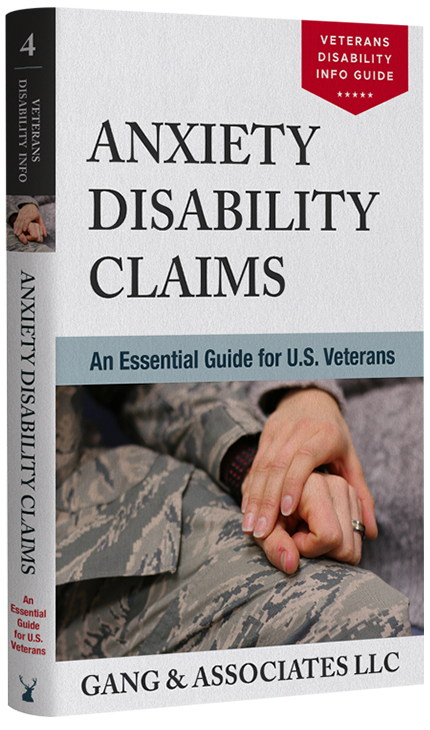Guides
VA Disability Ratings for Anxiety
An Essential Guide for U.S. Veterans
An estimated 12% of percent U.S. military veterans experience generalized anxiety disorder (GAD). Rates are even higher (40%) for veterans diagnosed with post-traumatic stress disorder (PTSD). Both combat and non-combat experiences during military service can be traumatic enough to change the brain chemistry, resulting in lasting mental impairments like anxiety disorders, including panic disorder, agoraphobia, and obsessive-compulsive disorder.
But winning VA disability benefits for anxiety is challenging. The VA frequently rejects anxiety claims for eligible veterans.
There are several reasons the VA rejects anxiety claims. The most common reasons for rejection of VA anxiety claims are failure to prove an official anxiety disorder diagnosis and failure to prove that military service caused the anxiety disorder.
Winning claims for anxiety VA ratings require evidence of a VA-approved anxiety disorder diagnosis and the use of specific language to support anxiety service connection. Evidence of service connection may include documents reporting anxiety symptoms or treatment during service. Yet most veterans do not report anxiety symptoms or receive treatment for anxiety during service.
Without military records of anxiety symptoms or treatment, can veterans still win a VA rating for anxiety? Yes!
Our free eBook, VA Disability Ratings for Anxiety: An Essential Guide for U.S. Veterans, offers step-by-step guidance to help veterans gather evidence of anxiety service connection, prepare a successful VA claim for anxiety disorders, and appeal prior VA decisions denying a VA anxiety claim.

What’s in the eBook?
- Symptoms of Anxiety Disorder in Veterans
- Effective Treatments for Anxiety in Veterans
- VA Disability Ratings for Anxiety
- How to Win VA Benefits for Anxiety
- Getting Medical Nexus Letters for VA Anxiety Claims
- Proving Service Connection for Anxiety
- How to Appeal a Denied VA Claim for Anxiety
The VA considers anxiety disorders as serious health conditions and therefore offers disability ratings ranging from 0% to 100% total disability, depending on the amount of occupational and social impairment. The VA determines your rating by looking at the whole picture, considering all of the evidence presented in your disability claim, and estimating which rating best fits your level of impairment.
A solidly prepared VA claim can mean a faster VA review and a higher VA rating for anxiety. Our free eBook, VA Disability Ratings for Anxiety: An Essential Guide for U.S. Veterans, provides a clear and accessible overview of how the VA assigns disability ratings for anxiety and how to maximize your VA anxiety rating.
The Go-To Reference for Winning a VA Anxiety Rating
-
1
How to Get a VA-Approved Anxiety Diagnosis
-
2
How to Prove Service Connection for Anxiety Ratings
-
3
How to Appeal Rejected VA Claims for Anxiety
-
4
How to Increase VA Ratings for Anxiety
